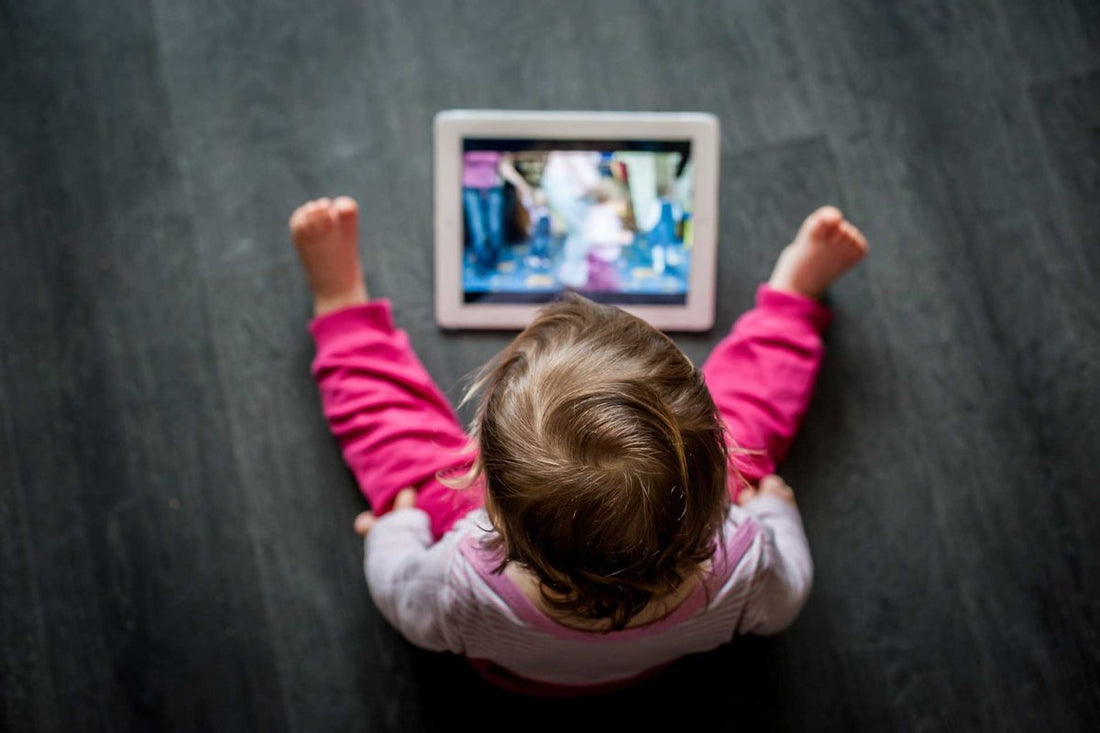
Kids and Screens: The Reality in 2024

Source: Freepik
Kids are constantly exposed to screens:
In 2024, children today are growing up in a digital landscape where screens are an integral part of daily life. Whether witnessing adults working from home on computers all day, communicating via FaceTime, or using phones during public transit, technology's pervasive presence offers unprecedented opportunities for learning, entertainment, and communication. However, the constant exposure to screens raises concerns about the potential negative impacts on children's physical health, mental and cognitive well-being, and social development.
What are the long-term effects of screens
While limited screen time can be beneficial for educational purposes, excessive usage may detrimentally impact a child's development and overall health. Studies have linked prolonged screen time to various issues, including:
- Poor sleep quality (critical to brain development)
- Behavioral problems
- Slower language and cognitive development
- Eye strain and vision problems
- Decreased physical activity and social interaction
- Obesity
The American Academy of Pediatrics (AAP) advises against screen time for toddlers under 18-24 months, with limited digital media use for those aged 2 to 5 years.
“Parent training and education are key to minimizing, or hopefully even avoiding, screen time in children younger than two years,” said senior author David Bennett, PhD, a professor of Psychiatry in Drexel’s College of Medicine.”
So what are ideas to limit Screen-time?
Despite the challenges posed by the omnipresence of screens, there are practical steps that parents and caregivers can take to limit screen time and promote healthier habits for children:
-
Set clear screen time limits: Establish specific rules and boundaries regarding screen use, including designated times for screen-free activities such as outdoor play, reading, and family time.
-
Lead by example: Serve as a positive role model by demonstrating healthy screen habits yourself. Limit your own screen time, especially during family meals and quality time with children, and prioritize offline activities and interactions.
-
Create screen-free zones: Designate certain areas of the home, such as bedrooms and dining areas, as screen-free zones to promote relaxation and uninterrupted family time.
-
Utilize parental controls: Take advantage of parental control features available on devices and apps to monitor and manage children's screen time effectively. Set up age-appropriate content filters, time limits, and restrictions to ensure a safe and balanced digital experience.
Some tips to replace Screen-time:
-
Get out and play! Encourage children to spend time outdoors engaging in physical activities like riding bikes, playing sports, or exploring nature.
-
Unleash creativity with crafts: Provide children with art supplies like crayons, paints, and paper to unleash their creativity. Engaging in art projects allows kids to express themselves and develop fine motor skills while having fun.
-
Fuel the love for reading: Cultivate a love for reading by setting aside dedicated time for reading books or storytelling. Create a cozy reading nook with comfortable seating and a variety of age-appropriate books to spark their interest.
-
Explore the kitchen: Involve children in cooking and baking activities to teach them valuable life skills while having fun in the kitchen. Let them measure ingredients, mix batter, and decorate treats, fostering independence and creativity.
-
Groove to the beat: Encourage children to explore music and dance through singing, playing instruments, or dancing to their favorite tunes. Music and movement activities promote self-expression and physical coordination.
-
Play Screen-Free Games: From family board games to educational interactive platforms like the Yoto Player or Tokidos PlayCubes. These alternatives have proven beneficial for learning while playing and bring families closer by fostering shared experiences.

In 2024, children's screen exposure is a pervasive aspect of modern life, raising concerns about its long-term effects.
At Tokidos, we understand the challenges of modern parenting and the frustration when you're told your kids spend too much time in front of screens or that you're not doing things right. We hear you!
That's why we're excited to introduce Tokidos PlayCubes.
It's a platform of science-based games designed to captivate your 3 to 8 years old, helping them discover the wonders of math, science, music, and language while developing crucial skills. And here's the best part—it's all screen-free!
